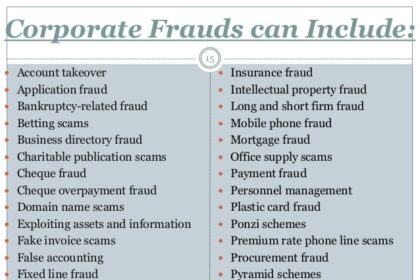The threat of foreclosure is stressful enough for homeowners, but the existence of foreclosure scams makes the situation far worse. These schemes prey on individuals in dire financial straits, promising false hope while often robbing them of what little they have left. In 2024, as the lingering economic consequences of recent events remain, foreclosure scams are anticipated to be especially problematic. Understanding how these scams have evolved and the best ways to defend yourself is crucial.
The Ever-Shifting Landscape of Foreclosure Scams
Predatory individuals and companies adapt their strategies quickly, making it tougher for homeowners to spot these scams. Here’s how foreclosure scams are evolving in 2024:
- Government Imposter Scams: Scammers are increasingly taking advantage of government relief programs set up to help homeowners. They impersonate representatives from organizations such as the FHA or HUD, promising to save your home in exchange for fees or personal information.
- Sophisticated Technology: Scammers now use targeted text messages, robocalls, and realistic-looking websites to mimic legitimate agencies. These make scams harder to differentiate from real assistance offers.
- Cryptocurrency Demands: Some scammers now specifically ask for payments in cryptocurrency. Since these transactions are hard to track, recovering money becomes far more difficult for victims.
The Red Flags: Spotting a Foreclosure Scam
Learning to identify potential scams is your first line of defense. Be wary of these common red flags:
- Upfront Fees: Legitimate housing counselors should never demand upfront fees before providing services. A request for payment before reviewing your situation or outlining services is a major red flag.
- Guarantees of Success: Your mortgage situation depends on numerous factors. Anyone promising to absolutely stop your foreclosure is most likely lying.
- Pressure to Sign Paperwork Quickly: A scammer may create a sense of urgency, discouraging you from reading documentation or seeking a second opinion. Never sign anything you haven’t carefully reviewed and don’t understand fully.
- Instructions to Stop Communicating with Your Lender: Any legitimate scheme to save your home depends on open communication with your lender. Suggestions to stop paying your mortgage or cut communication are significant warnings.
Protection in a Shifting Environment
Knowing how to safeguard yourself and where to turn for help will greatly decrease your risk of being a victim. Here’s what to do:
- Only Work with Trusted Sources: Seek help from your lender first. Government-certified HUD housing counselors are another excellent resource for free advice (https://www.hud.gov/program_offices/housing/sfh/hcc).
- Verify Sources: Before contacting anyone offering assistance, always double-check their identity. Ensure that government agencies and relief programs they reference are real. Look up phone numbers independently, don’t just rely on numbers the potential scammer provides.
- Never Fall for Urgency Tricks: A genuine assistance option won’t disappear if you take your time to read, research, and make an informed decision. Resist high-pressure tactics designed to scare you.
- Report Scam Attempts: Report suspicious activity to the Federal Trade Commission (FTC) and your state’s attorney general to help track these criminals and potentially warn others.
Specialized Scams to Watch Out For
Beyond the typical tactics, a few prevalent schemes demand extra vigilance in 2024:
- “Bait and Switch” Scams: You may be promised a loan modification only to later find yourself pushed into selling your home far below market value to the ‘rescuer’ or their accomplices.
- Rent-to-Own Exploitation: Some schemes aim to strip you of your home equity. You become a renter in your own house and could wind up evicted if you miss even a single payment.
- Post-Foreclosure Fraud: Even after a foreclosure, predatory entities can take advantage of homeowners by offering to get the house back. They often charge enormous fees but make no actual effort to recover the property.
It’s Not Only Scammers: Seek Protection from Foreclosure Itself
Don’t wait for a foreclosure notice to arrive. Contacting your lender at the first sign of financial trouble is vital. Be honest about your changed circumstances; most lenders prefer working out a temporary solution over foreclosing. Options often available include:
- Repayment Plans: Lenders might restructure your repayments into smaller, more manageable installments over a period of time.
- Forbearance: You might be able to temporarily pause or reduce your mortgage payments for a set time.
- Loan Modification: Depending on your situation, the lender might modify your loan’s terms by altering the interest rate, duration, or even part of the principal.
Exploring Non-Lender Solutions
While reaching out to your lender is the first step, other avenues remain viable, especially if the lender isn’t receptive.
- Government Programs: Programs like the Hardest Hit Fund (https://www.makinghomeaffordable.gov/) could provide financial assistance if you live in an area heavily impacted by foreclosure. Specific state-level resources may also exist.
- Selling Your Home: If avoiding foreclosure feels insurmountable, listing your house for sale on your terms may give you financial control that foreclosure doesn’t. A short sale (when the lender agrees to accept less than the outstanding mortgage) might be feasible if your house is worth less than the debt.
Legal Know-How as a Tool
Understanding your legal rights as a homeowner is empowering:
- Review Your Mortgage Documents: Know the specific terms of your agreement. Certain stipulations could include rights in the event of hardship.
- Understand “Foreclosure by Judicial Sale” Processes: Some states’ foreclosure processes involve the courts. Consult an attorney specialized in real estate law for specific knowledge on judicial foreclosures in your area.
- Deficiency Judgments: After a foreclosure, you might still be held liable for any remaining debt if the sale of the house didn’t fully cover the amount owed. State laws vary regarding how this works – legal advice is critical here.
Additional Prevention Techniques
Staying aware of wider economic circumstances may give you some advanced warning if your local job market or community finances become a threat:
- Track Housing Market Trends: Keep an eye on fluctuations in house prices in your area, as significant drops could increase foreclosure risks.
- Budget Carefully: Tighten expenses and create a strong emergency fund. Doing so may provide a temporary support safety net during financial uncertainties.
- Network and Skill Up: Maintain a robust professional network for job seeking in the case of income interruption. Enhance your resume with new skills for increased job security.
The Last Word
Facing foreclosure and its potential scams is incredibly stressful. Knowledge, awareness, and utilizing reliable support systems offer some measure of control. Seek help from trusted allies, remember that many people share similar struggles, and be sure to focus on what steps you can take to regain a sense of stability in the ever-changing economic landscape.













